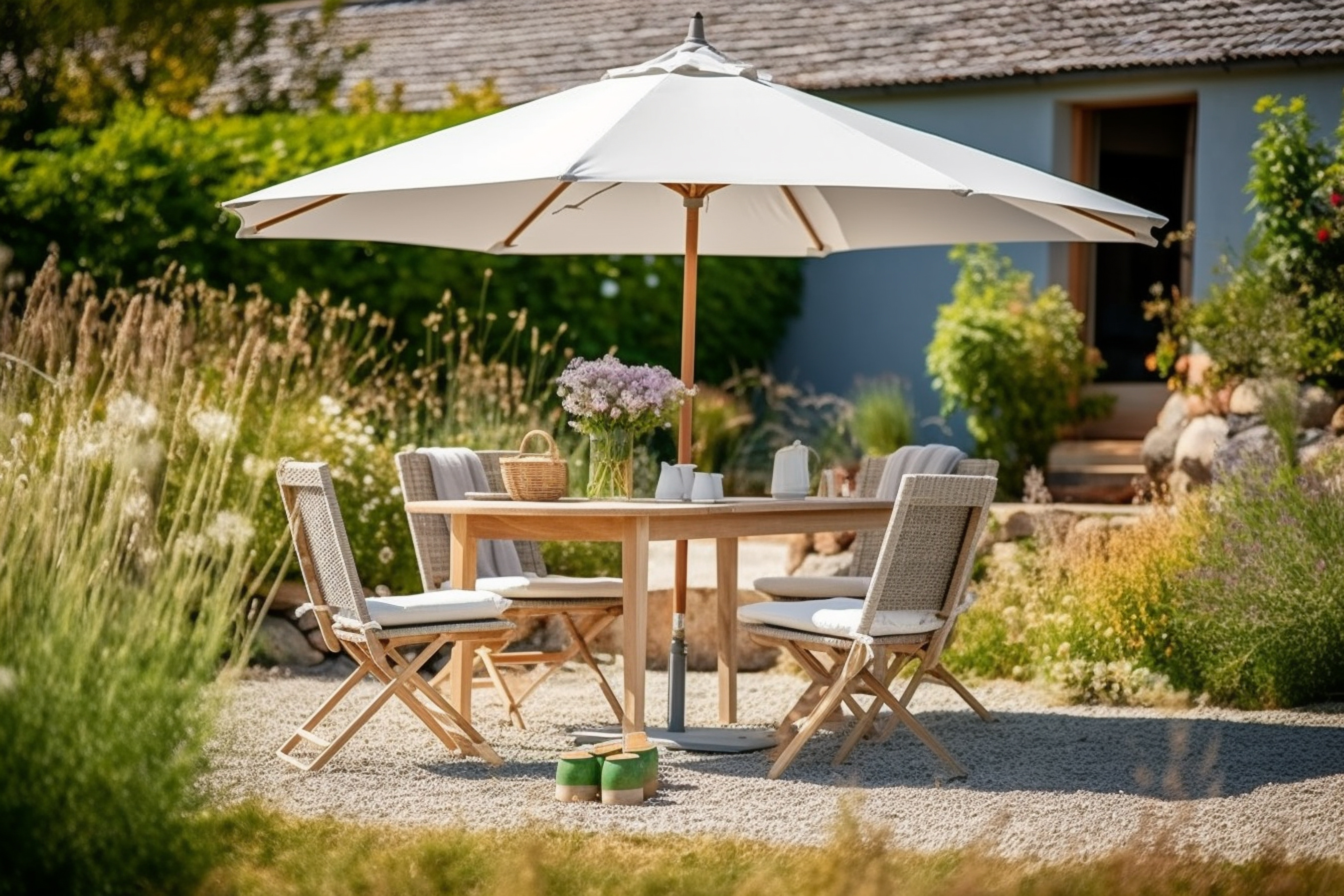Posted on: Monday, May 13, 2024
Homeowners place as much importance on the garden as any room in the house so the more love you give your garden, the more value you will add to your property. And if you are thinking of selling, a good garden will attract busy bee buyers like blooming flowers. Inspiration is everywhere and improving or simply maintaining your outdoor spaces will contribute to its value.
A well-maintained garden is the easiest way to maintain your home’s value. The more appealing and loved it appears, the more desirable it will be. Keeping the lawns nourished and well-trimmed, weeding, and painting fences all help to keep your garden in its best condition. Well-presented patio areas and well-kept hedges will add to a sense of order and show that the property is loved - this will help buyers fall for it, too.

Whether you want to create an inspired entertaining space, an outdoor kitchen, or a garden room, it’s important to plan carefully. Comfort is often an important central theme, so when you create your outdoor spaces, think about the details. From the cushions on your outdoor furniture to candles and lighting, every detail will help create a great atmosphere. Shelter from the elements in the form of a garden room, outdoor living room, or portable gazebo is like adding another room, perfect for entertaining.
If privacy is lacking in your garden, create it with fences, trees, or consider a pergola if your budget allows. There are more than likely areas or a corner of your garden that will lend itself to promoting privacy. This is where you should build your patio or decking to create a place where you can truly relax without feeling overlooked.

Staging your garden will reinforce its purpose and make your home appealing to buyers. If you decide to extend your patio, arrange seating by the fire pit, or add freshly picked flowers or tableware to alfresco dining areas. Your garden should naturally look its best at this time of year, making your home appear radiant and allowing you to enjoy your outdoor spaces. Displaying this potential will allow potential buyers to easily see themselves enjoying the garden and emotionally connect with your home.
Home is a place where you feel safe, and your garden should offer this feeling in spades. Secure and well-lit at night and safe places for children and pets to play in during the day are important elements of creating a safer outdoor garden space. And hand in hand with this are all those practical features to make this easier. A good garden shed or outbuilding with secure locks can be stylish and effective storage solutions for bikes, bins, and unsightly paraphernalia that is better stowed away. Log stores add real character to your garden and are a great way to keep your logs dry, keeping your fire going on wintry nights.
Are you searching for a home with a wonderful garden? Contact your local Guild Member today.
We are required by law to conduct anti-money laundering checks on all those selling or buying a property. Whilst we retain responsibility for ensuring checks and any ongoing monitoring are carried out correctly, the initial checks are carried out on our behalf by Lifetime Legal who will contact you once you have agreed to instruct us in your sale or had an offer accepted on a property you wish to buy. The cost of these checks is £60 (incl. VAT), which covers the cost of obtaining relevant data and any manual checks and monitoring which might be required. This fee will need to be paid by you in advance of us publishing your property (in the case of a vendor) or issuing a memorandum of sale (in the case of a buyer), directly to Lifetime Legal, and is non-refundable. We will receive some of the fee taken by Lifetime Legal to compensate for its role in the provision of these checks.